International Activities on Used Fuel Reprocessing
by Will Davis reporting from the 2016 ANS Winter Meeting in Las Vegas
The ANS Nuclear Cafe is a blog owned and edited by the American Nuclear Society. Information contained on the ANS Nuclear Cafe has been provided by numerous sources. Therefore, the American Nuclear Society assumes no responsibility or liability for the accuracy of information contained herein. DISCLAIMER: The views expressed in posted articles do not necessarily reflect the views of the American Nuclear Society. The views expressed here are those of the individual authors. ANS takes no ownership of their views. The American Nuclear Society assumes no responsibility or liability for any use or operation of any methods, products, instructions, or ideas contained on this site.
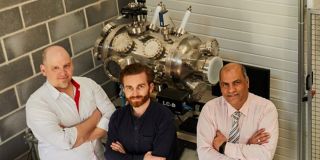
A message from Chapman Nuclear
New Lattice Confinement Fusion Power Reactors May Eliminate 95% of SNF
by Will Davis reporting from the 2016 ANS Winter Meeting in Las Vegas
By Will Davis, reporting from the 2016 ANS Winter Meeting in Las Vegas
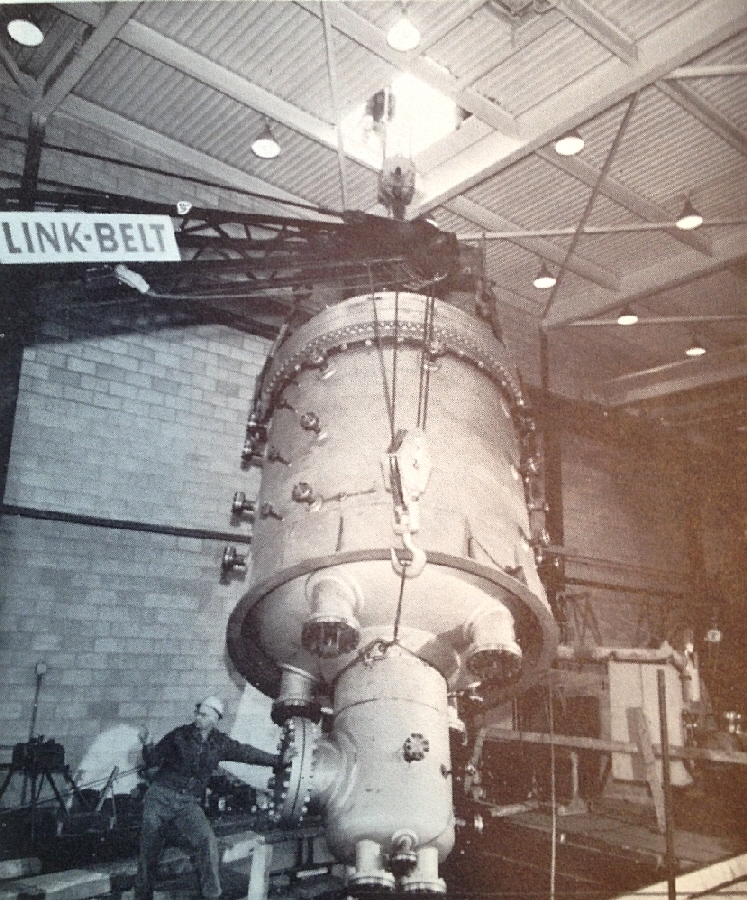
Installation of SPERT-II reactor vessel at National Reactor Testing Station, now Idaho National Laboratory. From IDO-16050, published 1959, in Will Davis library.
The history and lore surrounding the dozens of reactors constructed and operated at the Idaho National Laboratory could fill a book - and has filled at least one whole book and parts of many others. Today, at the American Nuclear Society's 2016 Winter Meeting a unique presentation was given in the early afternoon by Harold McFarlane, who retired after 44 years working with Argonne National Laboratory (which operated a number of the reactors built in Idaho.)
"How do we move nuclear energy into the future?" was the question asked and answered in a variety of ways during a fascinating speakers' session that followed this morning's opening plenary. Several expert speakers in a variety of fields provided frank and illuminating commentary on the condition of nuclear now, and on the things that have to change for nuclear energy to be vibrant in the decades to come.
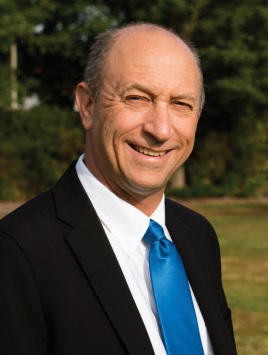 Kicking off the American Nuclear Society's 2016 Winter Meeting (held at Caesar's Palace, Las Vegas) was ANS President Dr. Andrew Klein's speech at the Opening Plenary, in which Dr. Klein expressed a bright vision for the future not just of ANS but of its members and their contributions.
Kicking off the American Nuclear Society's 2016 Winter Meeting (held at Caesar's Palace, Las Vegas) was ANS President Dr. Andrew Klein's speech at the Opening Plenary, in which Dr. Klein expressed a bright vision for the future not just of ANS but of its members and their contributions.
By: Priyarshini Ghosh
by Gene Grecheck and Brett Rampal
We've seen in the last two weeks both good news and bad for the U.S. nuclear plant fleet, as one nuclear unit under construction came on line and one of the earliest remaining in the U.S. was permanently shut down. The net effect? Raising the total rated megawatts of U.S. nuclear plants slightly, but remaining at the same number of nuclear units on line.
It is highly unlikely that the issues surrounding energy will make any difference in whomever we choose for our next President. Other concerns have drowned out energy as an important issue. That said, there are distinct differences among the four presidential nominees with regard to energy, particularly nuclear.
Live streaming on Facebook from Nuclear Science Week 2016 Big Event! Enjoy today's "live" matinee.
The American Nuclear Society (ANS) is a proud and active partner of Nuclear Science Week. ANS recommends that everyone share their tweets using the event hashtag: #NuclearSciWeek.
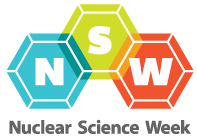
October brings many wonderful things each year, but of special interest to us is the annual National Nuclear Science Week (#NuclearSciWeek on social media) event which is intended to help everyone learn how nuclear science and technology works every day to improve their lives.
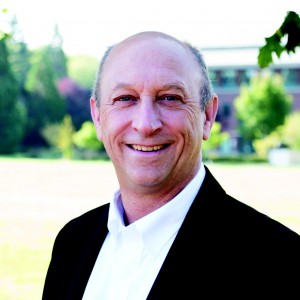
Klein: "We need to start somewhere"
At the ANS Annual Meeting in New Orleans in June, ANS President Andrew Klein introduced the Nuclear Grand Challenges project, which is aimed at understanding the technical challenges facing nuclear science and technology. To identify those challenges, ANS will be accepting ideas from members and the public from now until March 2017. Klein discussed with Nuclear News Associate Editor Tim Gregoire his goals for the project and how the final challenges will be chosen.
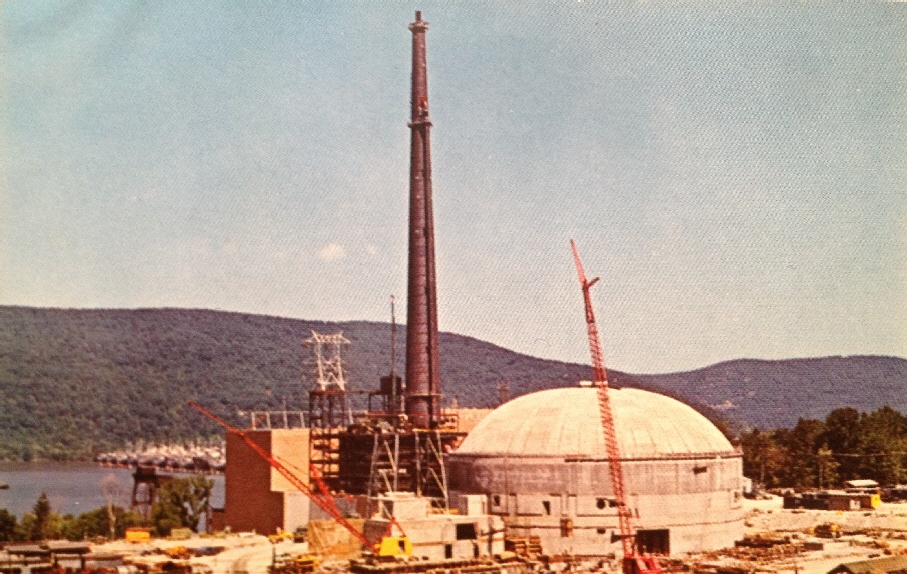
Indian Point Unit 1 under construction. Photo in Will Davis library.
A new article published by the Korea Times, entitled "Korea is second-fastest nuclear plant building country: IAEA" points up the fact that South Korea has historically built its nuclear plants on the average of 56 months (from construction start to commercial operation.) The article points up the fact that two nations normally thought of as nuclear power leaders and pioneers, France and the United States, have historically seen this average way up at 126 months and 272 months, respectively. I'd like to offer some comments -- not a defense, but just some comments -- on those numbers to provide perspective, since they're pretty long and, in the case of the U.S., extremely long.
The announcement made this past September 27 that Russia had signed an agreement with Cuba to cooperate in the advancement of nuclear technologies raised in some quarters the notion that Cuba might again aspire, eventually, to investigate nuclear energy. The details of the original effort to give nuclear energy to Cuba were remembered in some places; we will take a brief look at that effort and what became of it.
America, Japan and China are racing to be the first nation to make nuclear energy completely renewable. The hurdle is making economic the extraction of uranium from seawater, because the amount of uranium in seawater is truly renewable as well as inexhaustible.
Special ANS Friday Matinee edition by Will Davis
The splitting of the atom did more than simply expand our knowledge of physics - it halved the course of history, dividing us with the before and the after.
On Wednesday, September 21, Japan's Chief Cabinet Secretary Yoshihide Suga announced that the nation would undertake a thorough review of the Monju fast-reactor project. Nikkei Asian Review quoted Suga as saying that the government "will fundamentally review it by the end of the year, including (the option of) scrapping it." Thus, it would appear that Monju may finally be facing the final curtain as a working project - although it has not operated in some time.
Today's Friday Nuclear Matinee video of climate policy expert Michael Shellenberger comes to us from TED.com. "We're not in a clean energy revolution; we're in a clean energy crisis," says climate policy expert Michael Shellenberger. His surprising solution: nuclear. In this passionate talk, he explains why it's time to overcome longstanding fears of the technology, and why he and other environmentalists believe it's past time to embrace nuclear as a viable and desirable source of clean power. Enjoy the 14 minute video.